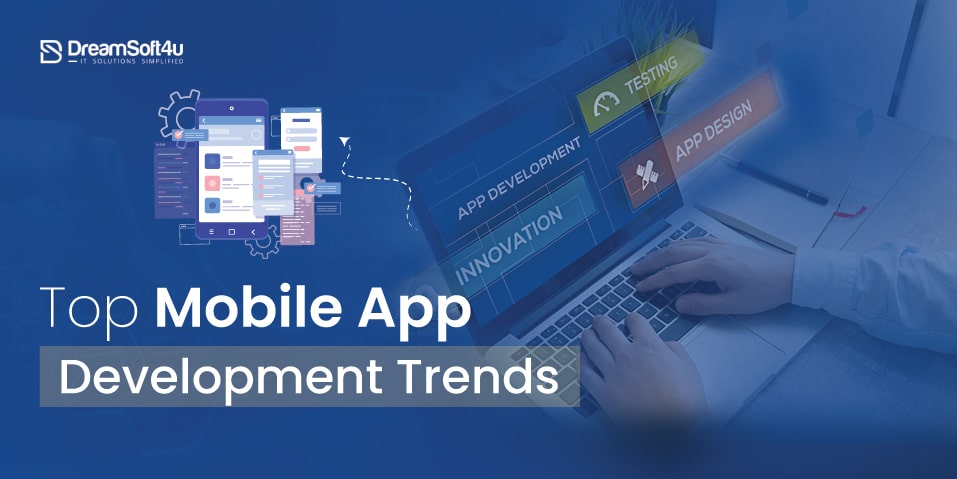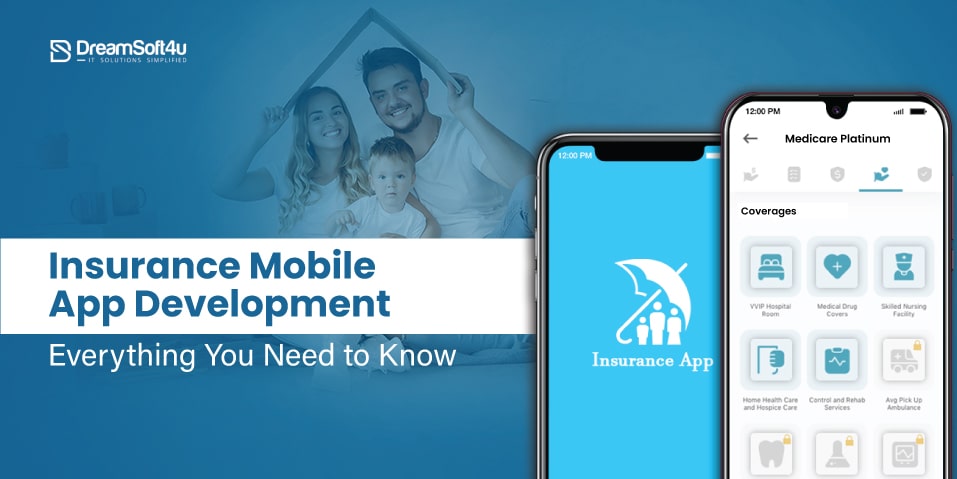Medical software development is crucial for improving healthcare delivery worldwide. Nowadays, every service in the healthcare industry uses advanced technologies that help healthcare providers provide more efficient and accurate care. In modern healthcare technologies, providers invest in electronic health records (EHRs), telemedicine apps, and AI diagnostic tools. These tools change the experience of how patients receive treatment.
Medical software helps streamline administrative tasks and enhances patient outcomes by providing real-time data and enabling remote consultations. As healthcare evolves, the growth of medical software is vital for meeting the rising demand for quality care and making healthcare systems more effective and accessible. This progress is leading to a future where healthcare delivery is faster, more precise, and better tailored to individual needs.
Table of Contents
ToggleWhy Should You Build Healthcare Software?
The goal of digital media and web technologies in the medical industry is to create a single information space of varying scalability: from a standalone clinical institution to a regional network. Information systems and networks build a reliable connection between patients, medical consultants and healthcare providers, which is handy and beneficial for all the parties. So connect with the best healthcare software development company that can build perfect software for your business.
Benefits for Clinical Specialists
- Elimination of daily routine paperwork
- Easy management of practices using electronic health records
- Enhanced collaboration with colleagues even in spite of the geographical distance
Benefits for Patients
- The ability to make appointments and fill out documents remotely
- Easy communication with personal physicians via secure online channels
- Access to lab results and medical history via digital personal health records
- Additional educational information provided by experts on different issues
Benefits for Health Organizations
- Improved diagnostics due to reliable and comprehensive patient data and easy access to records
- Better coordination of processes because all of the information is stored in one place; availability of communication tools
- Reduced costs due to the automation of numerous tasks
- Enhanced quality of medical services
- Increased patient satisfaction and engagement
These considerable benefits prove that every medical company, large or small, should make healthcare software to succeed in a highly competitive market.
Types of Medical Software
Modern clinical establishments are freed from excessive paperwork and can seamlessly manage numerous processes due to the different types of Medical Software Development.
1. Electronic Health Records (EHRs)
EHRs are electronic enhanced records that contain all the health-related details of a particular patient. It covers disease history, treatment history, medications they had, and results of some tests conducted in the past. The utilization of EHRs also helps doctors and other healthcare givers review a patient’s record in a short time, hence making a complete record accessible. It enhances the quality of diagnosis, enables doctors to plan for the required treatment, and facilitates information sharing between different health workers, thereby enhancing the delivery of proper, coordinated, and safer care in health facilities.
2. Practice Management Software
Practice Management software aids in the management of a medical office as it handles day-to-day activities. These are tools for the appointment and scheduling of patients, maintenance of the bills, and recording the patient’s records. These are among the tasks that are grouped by practice management software, and eliminating the paperwork is evident to the staff. It also integrates the communication between patients and the organization, as well as any other administrative processes.
3. Telemedicine Platforms
Telemedicine software enables patients to access physicians through computers, so they do not have to go to the clinic physically. Consumers can schedule a live or video conferencing visit or talk with the practitioner on the phone or via virtual chat. It is especially helpful when the patient is required to attend follow-up visits or annual checkups and brings efficacy to health causes through the reduction of physical movements, possibly due to geographical barriers or through self-restrictions.
4. Medical Imaging Software
Medical Imaging Software assists doctors in visualizing records of patients’ medical images from X-rays, MRIs, and CT scans. It offers support to improve and make sense of these images more easily to diagnose disorders and even offers strategies on how to attend to them. Medical Imaging Software helps in studying intricate internal structure images to diagnose better and also for a precise treatment plan.
5. Health Information Systems (HIS)
Hospital Information System (HIS) is a total system of managing as well as integrating various forms of information within a healthcare institution. It is drawn from electronic health record data, laboratory data, and pharmacy records. Because multiple departments often provide care, HIS aids in the coordination of care since it is easier for all departments to gather the required patient information, making patient care more efficient and effective.
6. Clinical Decision Support Systems (CDSS)
CDSS offers doctor suggestions regarding the patient’s condition and medical standards. It takes in the data that is keyed into the system and comes up with a likely diagnosis, treatment or action. It assists doctors in arriving at better decisions, practicing the way to optimize patient care and implementing evidence-based recommendations.
7. Personal Health Records (PHRs)
Another relevant concept is the electronic personal health record (PHR), which is defined as an asset that enables people to manage personal health information. The clients can document information concerning their medications, allergies, and test results in a personal records section. This way, the information is updated and easily retrievable, making the PHRs useful tools that enhance patients’ role in their health care and interactions with the providers.
A Guide to Medical Software Development

As with any other type of software, there are numerous open-source ready-made solutions for different kinds of medical businesses. Examples are FreeMED, OpenEMR, One Touch EMR, and others.
One size never fits all, and many companies opt for custom healthcare software development that can be perfectly tailored to their precise needs.
One option is to use any of the open-source platforms, OpenMRS for instance, that enable agile software development and customization of out-of-the-box solutions with little programming knowledge.
Another option is to turn to an IT outsourcing company that can build custom medical software from scratch.
The following algorithm provides the most important steps that should be taken to make a customized healthcare project.
1. Define Your Target Audience
Prior to starting to develop custom software, you should clearly understand who your potential users are and what is of the most important to them. An in-depth analysis of the target audience’s needs and desires will help both the customer and the vendor get a precise vision of the future solution.
Therefore, it will be easier to decide on what features should be included and what technologies (virtual reality, cloud computing, IoT, etc) should be implemented. When developers establish a strong connection with potential users, they are able to deliver a much better product.
2. Decide on Functional Structure
The structure of software always depends on its functions. As soon as you define what functions your application will perform, you can visualize its structure. Decide on what modules and sub-modules to create and how to connect them.
3. Design User-Friendly UI/UX
Successful software is impossible without an intuitive interface by UI/UX development company, as it is the main tool of end users. If this tool is complicated and not logical, users will shy away from it.
To create a consistently easy-to-use solution, software engineers and designers collaborate to build a user interface (UI) and create a user experience (UX) based on end customers’ expectations.
4. Provide Data Protection
Any type of healthcare software development provide inevitably to secure personal data. Therefore, security assurance must be a priority. Various methods and encryption techniques can be used to provide data protection. Make sure that your vendor is able to develop an app with an appropriate security level.
5. Integrate with Other Systems
Integration with the legacy workflow is really important, as numerous documents or services should be kept and seamlessly transferred to the new system. Planning the integration process is a challenge. The migration should be performed in such a way that customers won’t experience delays or downtimes.
Solutions either for medical manufacturing or for a healthcare agency are able to add value to business only when they are compatible with other systems.
Want to develop Healtcare App for your Business?
Get your custom software via DreamSoft4u.
Conclusion
The development of medical software is rapidly changing how healthcare is delivered and experienced. EHR systems, telemedicine applications as well and the CDSS system are increasing the effectiveness and quality of the healthcare delivery process. Some of these technologies reduce the workload that involves administrative work, enhance patients’ health, and allow for remote consultation. The need for medical software will not decline in the future since the healthcare industry is dynamic. These advancements will only serve to address the increased demands of quality healthcare and ensure that all people get the kind of healthcare they need from their healthcare providers.
FAQs
Q1. What are the key steps in developing medical software?
The key steps include defining requirements, designing the software, developing and testing the system, ensuring regulatory compliance, and deploying the software. Continuous updates and support are also crucial.
Q2. How important is regulatory compliance in medical software development?
Regulatory compliance is crucial as it ensures the software meets legal standards and industry regulations, such as HIPAA or GDPR. It helps protect patient data and ensures the software is safe and effective.
Q3. What are the main challenges in developing medical software?
Major challenges include meeting stringent regulatory requirements, ensuring data security and privacy, integrating with existing systems, and addressing user needs effectively.
Q4. How does user experience (UX) impact medical software?
A good UX ensures that the software is easy to use, which enhances efficiency and reduces errors. It is vital to ensure that healthcare professionals can quickly and accurately interact with the software.
Q5. Why are continuous support and updates important for medical software?
Continuous support and updates are essential to address any issues that arise, adapt to new regulations, and incorporate feedback. This ensures the software remains functional, secure, and aligned with the latest medical practices.


















